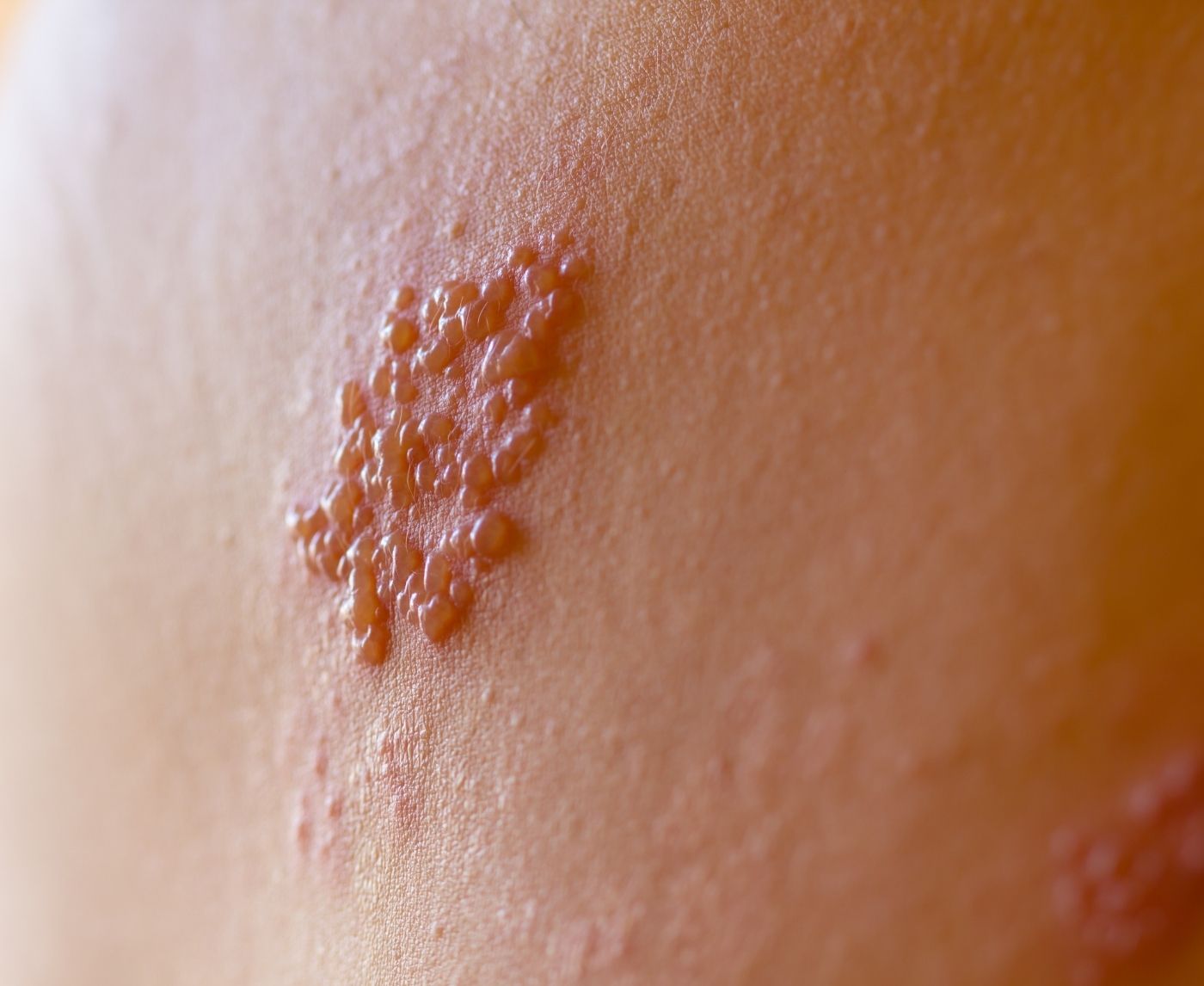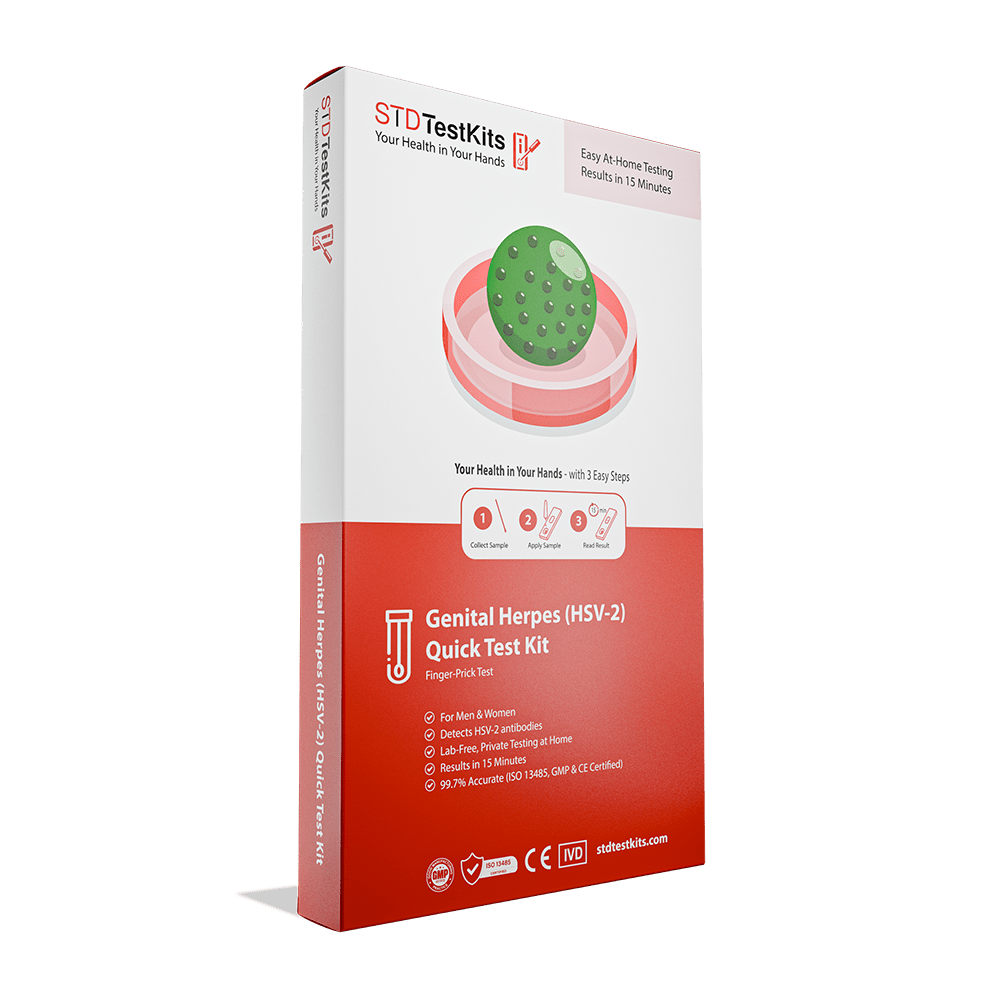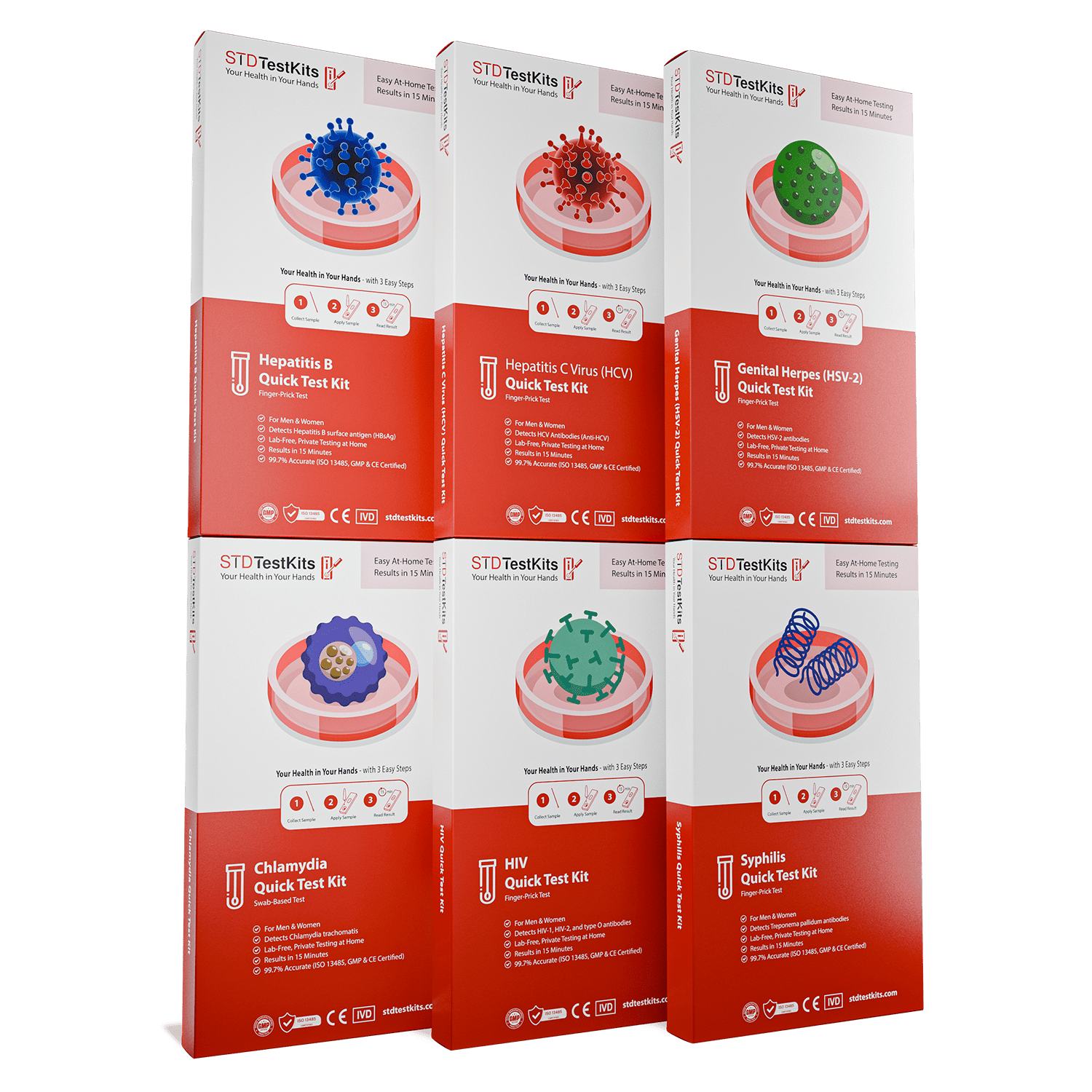6 STDs You Can Catch From Oral, Even If It Feels “Low Risk”
Quick Answer: HSV-1 typically causes cold sores but can also appear genitally from oral sex. HSV-2 usually causes genital herpes and recurs more often. Both can overlap, and the only way to confirm type is through type-specific testing.
This Isn’t Just a Cold Sore, And It’s Not Just “Down There”
Let’s start where most confusion begins: the mouth. Tyrese, 27, thought he was in the clear because he’d only ever had oral sex and used condoms for everything else. So when he noticed tingling and a blister near his lip, he chalked it up to stress. When his partner got tested and came back positive for HSV-2, everything spiraled.
What many people don’t realize is that HSV-1 and HSV-2 can infect either region of the body. Yes, HSV-1 is typically oral, and HSV-2 is typically genital. But “typically” doesn’t mean “always.” HSV-1 can be transmitted to the genitals during oral sex. HSV-2 can, rarely, infect the mouth. The real twist? Neither virus needs symptoms to spread.
Roughly 50–80% of adults in the U.S. have HSV-1 by age 50, often from childhood kisses or shared drinks. HSV-2 affects about 12% of people 14–49, according to the CDC. Many people don’t know they have either until a partner tests positive or symptoms appear under stress, illness, or hormonal changes. That’s when the identity crisis kicks in: Which one do I have? And how the hell did I get it?
So, What Are the Actual Differences Between HSV-1 and HSV-2?
To understand which kind of herpes you have, you need to look at two things: where your symptoms are, and what the test says. The challenge? That’s not always clear-cut. Someone with HSV-1 can have a genital outbreak that looks identical to HSV-2. And many people carry both without symptoms at all.
Table 1. Core differences between HSV-1 and HSV-2. Both viruses can infect either location, but they behave differently when they do.
This is where things get real: if you have a positive test but no symptoms, you may never know where the virus lives unless you’ve had an outbreak swabbed. And if you’re newly diagnosed but haven’t had blood work to determine the type? You could be dealing with either one.
Here’s what matters most, especially if you’re dating, managing your health, or planning a pregnancy: HSV-2 tends to recur more often and is more likely to shed without symptoms, particularly from the genitals. HSV-1 genital herpes, while still a lifelong infection, tends to be milder over time. That doesn’t make either “better” or “worse.” But it can guide how you talk to partners and decide on treatments.
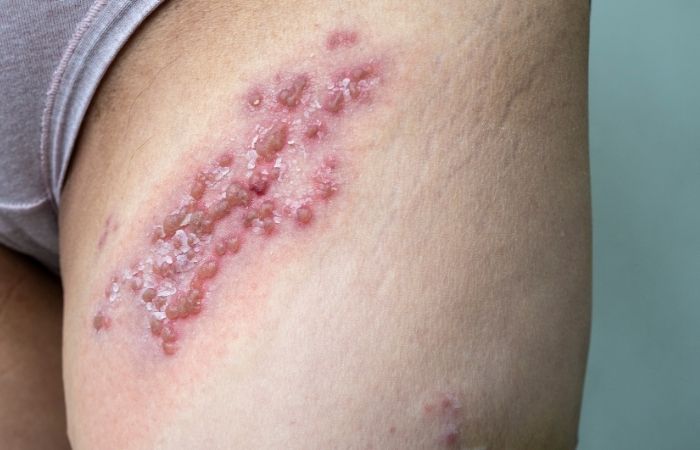
People are also reading: Can You Get Chlamydia in Your Throat? Yes, Here’s What It Feels Like
The Herpes Testing Maze: Why It’s Hard to Get a Straight Answer
So you got tested. Maybe it was routine, maybe it was prompted by symptoms, maybe a partner’s status made you rethink everything. You expected clarity, and instead, you got codes, titers, maybe a vague “positive” without much context. Testing for herpes isn’t as straightforward as people assume.
If you had visible sores, the most accurate way to test is a viral culture or PCR swab from the lesion. This can identify not just the presence of herpes, but the specific type. The catch? The sore has to be fresh, ideally within 48 hours. After that, false negatives become more likely.
If you didn’t have sores, or missed the window, a blood test (usually IgG) is used. This detects antibodies to HSV-1 or HSV-2. But here’s where it gets messy: IgG tests don’t tell you where the infection lives. They just tell you that at some point, you were exposed. And if the test is early (within the first 6–12 weeks after exposure), it might come back negative even if you’re infected.
Monica, 33, got a type-specific test after her boyfriend tested positive. Hers came back HSV-1 positive, HSV-2 negative. No symptoms, no known outbreaks. “So… what does that mean?” she asked. It meant she’d had HSV-1 exposure, possibly since childhood. It didn’t tell her if she was shedding genitally. It didn’t tell her if she was contagious. It didn’t even tell her if she could pass it to a partner.
That’s the emotional whiplash of herpes testing. You come looking for certainty and get nuance instead. But if you know what kind of test was done, and what it does or doesn’t say, you can start piecing together the answers.
If you're unsure of your type or haven’t been tested at all, an at-home herpes test can offer clarity discreetly. Just remember: it’s about more than a number. It’s about knowing your body, your status, and your options.
Let’s Talk Symptoms (Even When You Don’t Have Any)
Both HSV-1 and HSV-2 can cause classic herpes symptoms: tingling, itching, pain, blisters, scabs, and burning during urination. But most people with either virus will never notice a single thing. That’s part of what makes it so confusing and so common.
Here’s a scenario: Luis, 29, had no idea he had herpes until his partner had an outbreak and got tested. When Luis got screened, he was positive for HSV-2, but couldn’t recall any symptoms. Looking back, he remembered a painful ingrown hair near his groin after a camping trip. Could that have been it? Maybe. Maybe not. The virus doesn’t always announce itself.
If you do get symptoms, they usually show up 2–12 days after exposure. The first outbreak tends to be the most intense: multiple painful sores, flu-like symptoms, and swollen glands. Recurrences are typically shorter, milder, and less widespread. HSV-2 tends to reactivate more often than HSV-1, especially in the genital area.
But the absence of symptoms doesn’t mean absence of risk. Asymptomatic shedding is real, and it’s a big reason why herpes continues to spread. That’s why knowing your type, and being able to talk about it, makes such a difference, even if you feel fine.
What Treatment Looks Like (And Why It’s Not a Life Sentence)
So you’ve figured out what kind of herpes you have, or at least narrowed it down. Maybe your symptoms have cleared, or maybe they’re just starting. Either way, here’s what you need to know next: herpes is treatable, manageable, and doesn’t define your value, worth, or safety in future relationships.
There’s no “cure” in the traditional sense, meaning the virus stays in your body, but you absolutely can reduce symptoms, lower transmission, and live a fully connected life. Daily suppressive therapy (like valacyclovir or acyclovir) can reduce outbreaks and significantly lower the chance of passing it to a partner. Some people choose to take it only during outbreaks. Others, especially those with frequent recurrences or regular sexual partners, take it daily.
Jess, 24, chose daily meds after her HSV-2 diagnosis. “I just wanted peace of mind,” she said. “For me, it wasn’t about hiding it, it was about feeling like I had some control.” Her doctor explained that daily antivirals can cut the risk of transmission by nearly half, especially when paired with condoms. She hasn’t had an outbreak in over a year. “It just became part of my routine, like birth control or vitamins.”
One important note: suppressive therapy works for both HSV-1 and HSV-2, regardless of where it shows up. But insurance companies and some providers still misunderstand this, especially for genital HSV-1. If you’re getting pushback about treatment or testing, find a provider who understands the emotional and physical impact. Herpes is common, but stigma still shapes a lot of clinical conversations.
“So… Do I Have to Tell People?”
Here’s the uncomfortable but necessary conversation: disclosure. If you know you have herpes, especially genital herpes, you might feel pressure to tell every past or future partner, even if you’ve never had symptoms. That’s a heavy emotional load to carry. So let’s unpack it.
First, there’s no one-size-fits-all rule. Legally, some states require disclosure of certain STDs before sex, even if you’re using protection. Ethically? That’s a more nuanced terrain. The general recommendation from groups like the Planned Parenthood and the American Sexual Health Association is this: if you’re engaging in sexual contact that could transmit the virus, your partner deserves to know.
But that doesn’t mean you need to tell every Tinder match before chatting. It doesn’t mean you owe anyone a trauma-dump. It means, when things are moving toward physical intimacy, you bring your humanity to the table. You offer transparency, not fear.
Noah, 38, shares his HSV-1 genital status with new partners after a couple dates. “I say something like, ‘Hey, before things go further, I want to share something I live with. I have genital herpes, it’s HSV-1, and I haven’t had an outbreak in years. I manage it with meds, and it’s never affected my partners. But I always believe in being upfront.’”
Not everyone responds with grace. Some people walk away. Others ask questions. Many say, “Oh, me too.” And more than a few realize it’s not the dealbreaker they once assumed. The key? Lead with facts, not fear. Let them know you’re informed, responsible, and not ashamed. That alone changes the entire energy of the conversation.
Living With Herpes Isn’t About Waiting for the Next Outbreak
Too many people think a herpes diagnosis means a lifetime of fear, flare-ups, and awkward disclosures. But that’s not the reality for most. After the first year, which can be emotionally intense, many people find that herpes settles into the background of their life.
Outbreaks often become less frequent and less severe. For some with HSV-1 genitally, they stop entirely. For those with HSV-2, the first year is usually the most active. Stress, illness, menstruation, and friction can trigger recurrences, but so can doing nothing at all. That’s why listening to your body becomes part of the long-term toolkit.
Here’s where empowerment comes in: you’re not just reacting to herpes. You’re learning to predict it. You’re figuring out what triggers it, how to prep for intimacy, how to respond to symptoms early. That’s not punishment. That’s health literacy. And it’s powerful as hell.
Consider this: millions of people have herpes and don’t know it. The fact that you do puts you ahead of the curve. You’re more likely to test, treat, communicate, and protect your partners. That’s not shameful, that’s radically responsible.
Still Confused About Which Type You Have?
If you’ve never had a confirmed type-specific test, now’s the time. Whether you’ve had symptoms or not, knowing whether you have HSV-1 or HSV-2 can help guide your treatment, your conversations, and your peace of mind.
Type-specific IgG blood tests are generally accurate after 12–16 weeks from exposure. Earlier than that, they may miss infections. Swab tests can confirm the virus type during active outbreaks, usually within 48 hours of a lesion forming. If you're unsure when or where you were exposed, or which test to trust, consider retesting with an FDA-cleared STD Rapid Test Kit. They offer both HSV-1 and HSV-2 tests, and you can do them discreetly from home.
Remember: even if you have both HSV-1 and HSV-2, you’re still the same person. You’re still dateable. Still desirable. Still safe when informed. Type doesn't define you, understanding it empowers you.
Table 2. Herpes testing options and what they tell you. Type-specific IgG is the most reliable for identifying HSV-1 vs HSV-2 when no symptoms are present.
If your head is still spinning, pause. Breathe. Write down your test dates, results, and any symptoms you’ve experienced. Talk to a provider or reach out to support groups. You don’t have to decode this alone.
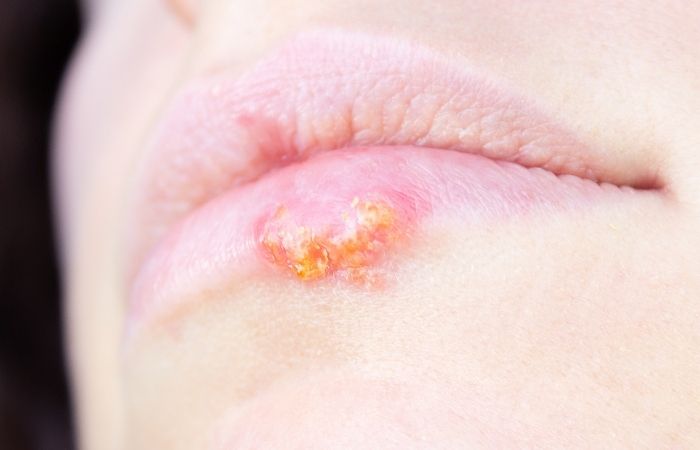
People are also reading: He Didn’t Tell Me He Had Herpes, What Happened Next
Herpes and Sex: Yes, You Can Still Have a Safe and Satisfying Sex Life
Let’s get one thing clear: a herpes diagnosis doesn’t mean your sex life is over. In fact, it can open the door to better communication, more intentional intimacy, and a deeper understanding of consent. What changes isn’t the pleasure, it’s the awareness.
Whether you have HSV-1, HSV-2, or both, it’s entirely possible to enjoy a fulfilling sex life with minimal risk of transmission. The keys are education, timing, and communication. Using condoms or dental dams can reduce transmission, especially during asymptomatic shedding. But they’re not foolproof. Suppressive therapy adds another layer of protection, lowering the chances of viral shedding by up to 70% for HSV-2. Combine that with awareness of your triggers and open conversations with partners, and suddenly, it’s not a risk-free leap, it’s a shared decision.
Lina, 31, was terrified to start dating again after an HSV-2 diagnosis. “I thought no one would want me,” she said. “But when I actually explained it to someone I liked, he just said, ‘Thanks for telling me. Let’s figure it out together.’” They set boundaries, got tested, and eventually became exclusive. She never had to “disclose” again, because they built trust from day one.
It’s okay if that’s not your story. But it can be your next chapter. Whether you’re navigating casual sex, kink, monogamy, or poly relationships, herpes doesn’t have to be a barrier. It’s just one more factor to navigate, like birth control, STI history, or trauma boundaries. And honestly? The people worth sleeping with will care about your whole health, not just your status.
You Are Not “Dirty.” You Are Not Alone.
There’s a specific kind of grief that comes with a herpes diagnosis, the grief of losing the version of yourself who believed you were immune, invincible, “clean.” That word, by the way, has done more damage in sexual health than almost any other. You are not dirty. You’re not broken. And you don’t owe anyone an apology for being human.
We don’t shame people for getting the flu, or strep, or COVID. Herpes is a virus. It spreads because humans connect. Through sex, yes, but also through kisses, touch, vulnerability, trust. If that’s not human, what is?
Millions of people, yes, millions, live with HSV-1 and/or HSV-2. Some know it. Many don’t. And the ones who do? They’re showing up in therapy, in dating apps, in doctor’s offices, in bedrooms. They’re doing the work. And that includes you.
Getting tested, knowing your type, learning how to manage symptoms, sharing your status when needed, these are acts of self-respect. Of partner care. Of radical honesty. That’s not something to hide from. That’s something to own.
If you’ve just found out you have herpes and you’re scared, let that fear sit beside you, not run the show. You’re not alone, and this isn’t the end of anything. It’s just the beginning of understanding your body in a new way. And if you’re still uncertain, or want to test discreetly at home, you can order a rapid herpes test kit right now and get clear answers in minutes.
FAQs
1. Can HSV-1 really show up on your junk?
Yup. It’s way more common than people think. HSV-1 isn't just the "cold sore virus" anymore , thanks to oral sex (which, let's be honest, is pretty common), it can totally show up down below. It’s usually picked up genitally when someone with an oral HSV-1 infection goes down on a partner. The surprise twist? Genital HSV-1 tends to come with fewer outbreaks than HSV-2. Still herpes. Still worth knowing. Just a different vibe.
2. How do I actually figure out which herpes type I have?
If no one told you after your test, you're not alone , lots of people walk out with a "herpes" diagnosis but no idea which kind. The gold standard is a type-specific blood test (IgG) or a swab of an active sore sent for PCR typing. If you’ve only ever had a generic “positive” from a clinic without any type details, go back and ask. Or better yet, test again somewhere that gives you the full picture.
3. I’ve had cold sores since middle school. Does that mean I already have herpes?
Technically? Yes. Cold sores are most often caused by HSV-1, and once you’ve got it, you’ve got it. But don’t freak , more than half the global population has HSV-1. If you’ve ever shared a soda can, kissed a relative, or touched your face after someone sneezed near you on the bus… yeah, it could’ve happened then. You’re in excellent company.
4. Can you give someone herpes even when nothing's going on “down there”?
Unfortunately, yes. It's called asymptomatic shedding , when the virus is active on the skin but not showing symptoms. HSV-2 sheds more frequently than HSV-1, especially in the genitals, which is why some people choose daily meds even when they’re not having outbreaks. Think of it like sneaky glitter: invisible, but still transferable.
5. Is it true that HSV-1 genital infections are less serious than HSV-2?
That’s a little too simplistic. Genital HSV-1 does tend to have fewer recurrences and lower shedding rates , which makes it easier to manage for many. But “less serious” depends on your context. First outbreaks can still be brutal. And if your doctor brushes it off like no big deal, but you're sitting at home Googling in tears, that matters too. Both types deserve real attention and care.
6. Will I always test positive now that I’ve got herpes?
Yep. Your immune system makes antibodies to the virus, and those stick around. A swab test only shows current shedding, but an IgG blood test will likely stay positive forever. If your tests ever suddenly come back negative after a confirmed diagnosis, double-check the lab. Antibodies don’t ghost.
7. Do I really have to tell my partner I have herpes?
That depends. Are you planning to have sex where herpes could be transmitted? Then yeah, it’s best to let them know , especially if it’s genital. But how you tell them is up to you. It doesn’t have to be a dramatic reveal. Try: “Hey, just so we’re on the same page , I’ve tested positive for HSV-2. I manage it and know how to reduce risk, but I believe in being upfront.” That’s grown-up energy.
8. Can I still have a baby if I have herpes?
Absolutely. Lots of people with herpes have totally healthy pregnancies and births. If you’re pregnant and have HSV (especially if it’s genital), your doctor might recommend daily suppressive meds during the last trimester. That’s just to lower the chance of shedding during delivery. It’s precaution, not panic. And no, you don’t need a C-section unless there’s an active outbreak when you go into labor.
9. Do herpes outbreaks feel different depending on the type?
Sometimes, yeah. Genital HSV-2 is known for recurring more often, which can mean multiple outbreaks per year if untreated. HSV-1 genital outbreaks tend to be more “one and done,” or super infrequent. But either type can come with that classic lineup: tingling, itching, pain, and blisters. Some people confuse them with razor burn, ingrowns, or even allergic reactions , so don’t assume unless you test.
10. Are those home herpes tests actually legit?
They are , as long as you're using one that’s type-specific and FDA-cleared. Good kits test for HSV-1 and HSV-2 antibodies from a small blood sample, like a finger prick. They’re discreet, fast, and super useful if you’re not into waiting rooms. But remember: blood tests take time to turn positive after exposure , usually 12 to 16 weeks. So if you just had a risky hookup last weekend, hold off a bit before testing.
You Deserve Answers, Not Assumptions
Herpes isn’t a punchline. It’s not a punishment. It’s a virus, one that nearly two-thirds of the global population has in some form. If that fact doesn’t shrink the shame, maybe this will: most people living with herpes are in relationships, have kids, have great sex, and have moved on from the diagnosis that once felt like an ending. Because it isn’t. It’s a beginning. Of honesty. Of clarity. Of deeper understanding.
If you’re still unsure which virus you carry, or if you’ve never been tested for type, don’t wait in the dark. This at-home combo test kit checks for HSV-1 and HSV-2 discreetly and quickly, no awkward clinics, no judgmental glances. Just truth, delivered in minutes.
Remember: the goal isn’t to be “clean.” The goal is to be informed. You already took the first step by being here. Keep going.
How We Sourced This Article: We combined current guidance from leading medical organizations with peer-reviewed research and lived-experience reporting to make this guide practical, compassionate, and accurate.
Sources
1. Planned Parenthood – Herpes: What You Should Know
2. American Sexual Health Association – Herpes
4. Genital Herpes – Symptoms and Causes (Mayo Clinic)
5. Herpes – STI Treatment Guidelines (CDC)
6. Herpes: HSV‑1 and HSV‑2 – Johns Hopkins Medicine
7. Herpes Simplex Virus – WHO Fact Sheet
8. Herpes Simplex Type 1 – StatPearls (NCBI Bookshelf)
About the Author
Dr. F. David, MD is a board-certified infectious disease specialist focused on STI prevention, diagnosis, and treatment. He blends clinical precision with a no-nonsense, sex-positive approach and is committed to expanding access for readers in both urban and off-grid settings.
Reviewed by: R. Wells, NP | Last medically reviewed: November 2025
This article is only for information and should not be used as medical advice.




